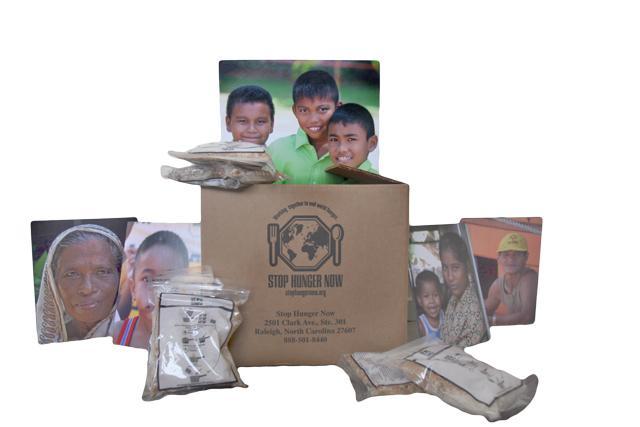
© NCSU Student Media 2011
Photo by Emily White
More than 600 volunteers, mostly students, gathered to package 103,506 meals Aug. 20 at the Service N.C . State event to send to Swaziland—but after the volunteers left Carmichael Gymnasium, someone else had to take care of getting the meals to Africa.
Stop Hunger Now is an international hunger relief organization that coordinates the distribution of food and other life-saving aid around the world. It packages meals for orphanages and school feeding programs and has provided meals to 76 countries worldwide including Uganda, Pakistan and Colombia. A total of 221,900 meals have been packed this week. The non-profit has packed 48,026,504 meals since its inception in 2005.
NCSU has hosted Stop Hunger Now in conjunction with Service N.C . State for the past six years and together have packaged 1.8 million meals.
“The event witnessed children, students across majors, youth programs and organizations, scouts and even senior citizens volunteer to package meals,” Tierza Watts, associate director of CSLEPS , said. “According to the FAO in 2009, 25,000 people that include both adults and children die every day from hunger and related causes. When this is the scenario, this initiative was just the right thing to do.”
According to Jan Rivero , the University program director of Stop Hunger Now, the program perfected the assembly process that combines rice, soy, dehydrated vegetables and a flavoring mix including 21 essential vitamins and minerals into small meal packets.
“Each meal costs only 25 cents,” Rivero said. “The food stores easily, and has a shelf life of five years and transports quickly. Each bag contains six servings.”
According to Rivero , research has shown that one in three people in developing countries are adversely affected by vitamin and mineral deficiencies.
Once taking food from the packaging site to the warehouse, the organization sends it to partner organizations or government programs on the ground in hunger-afflicted countries. These partner organizations pay for the shipping costs, evening out the effort.
“Addressing the problem of hunger is the single point where we can leverage relief for all humanitarian issues,” she said.
According to Rivero , providing a hot meal during school gives parents an incentive to send their children to school.
“Children seem to have higher levels of concentration, and are developing more normally,” Rivero said. “The program has long lasting impacts–girls are likely to stay in school longer, a decreased childhood mortality rate, gender equality. The cycle of poverty can begin to be broken. These children will then give back to their communities.”
Stop Hunger Now coordinates projects with more than 100 universities. But the organization shares a “special relationship with N.C . State,” according to Rivero .
“One must educate themselves on the facts on hunger,” Rivero said. “A review of the World Food Programme conducted by the United Nations will give this information. Next, speak up! The hungry have no voice. Tell people the facts you know. There is enough food to feed everyone. The last phase is the act of taking part or organizing an event such as a meal packaging program.”